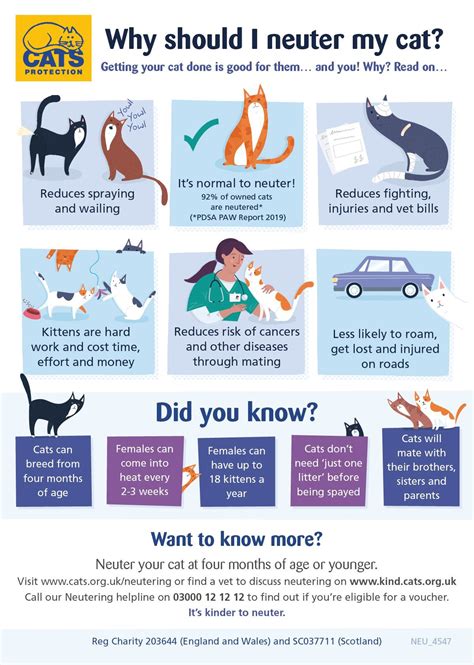Your Senior Cat: To Spay or Not to Spay?
The decision of whether or not to spay or neuter a cat, especially a senior cat, is a complex one. While spaying/neutering is generally recommended for cats of all ages to prevent unwanted pregnancies and reduce certain health risks, the considerations shift when dealing with older felines. This comprehensive guide explores the pros and cons of spaying or neutering a senior cat, helping you make an informed decision for your beloved companion.
What are the Benefits of Spaying/Neutering a Cat at Any Age?
Before focusing on senior cats, let's review the standard benefits of spaying or neutering:
- Preventing Unwanted Litters: This is perhaps the most significant reason. Uncontrolled breeding contributes to pet overpopulation, leading to euthanasia in shelters.
- Reducing Certain Health Risks: Spaying prevents uterine infections and tumors, while neutering reduces the risk of testicular cancer and prostate problems.
- Behavioral Changes: Spaying/neutering can often lead to calmer behavior, reducing spraying, aggression, and the urge to roam.
Should I Spay/Neuter My Senior Cat? The Pros
While the benefits mentioned above are generally true, they may hold less weight for a senior cat. However, there are still potential advantages:
- Preventing Mammary Cancer: While the risk of mammary cancer increases with age, spaying can still offer some protection, especially if performed before the cat reaches its senior years (generally considered 7 years or older for cats).
- Managing Uterine Infections: Even in older cats, uterine infections can occur. Spaying eliminates the risk entirely.
- Improved Quality of Life: In some cases, spaying or neutering can alleviate existing behavioral problems, even in senior cats, resulting in a more peaceful and comfortable life for your pet.
Should I Spay/Neuter My Senior Cat? The Cons
There are potential downsides to consider when spaying or neutering a senior cat:
- Increased Surgical Risk: Older cats have a higher risk of complications during anesthesia and surgery compared to younger cats. Pre-existing health conditions can further increase this risk.
- Recovery Time: Recovery might be slower in senior cats due to age-related factors and potentially slower healing.
- Unnecessary Procedure: If your senior cat is already past reproductive age and has no behavioral issues related to hormones, the procedure may be deemed unnecessary by some veterinarians.
What About My Senior Male Cat?
For male cats, the same considerations apply. While neutering is generally safe, the risks associated with anesthesia and surgery increase with age. Weigh the potential benefits (reducing spraying and aggression, preventing prostate problems) against the potential risks and your cat's overall health.
What if My Senior Cat is Already Showing Signs of Age-Related Health Problems?
If your senior cat has pre-existing conditions like heart disease, kidney disease, or diabetes, a thorough veterinary examination is crucial before considering spaying or neutering. These conditions can increase the risks associated with surgery and anesthesia. Your veterinarian can assess the risks and benefits specific to your cat's health status.
How Can I Decide? Talking to Your Veterinarian
The ultimate decision rests with you and your veterinarian. A thorough discussion about your cat's health, age, and behavior is essential. Your veterinarian can conduct a physical exam, run blood tests, and assess your cat's overall health to determine the risks and benefits of surgery.
Conclusion: Individualized Decisions for Your Senior Feline Companion
Spaying or neutering a senior cat is a highly individualized decision. There's no one-size-fits-all answer. Careful consideration of the potential benefits and risks, combined with a thorough discussion with your veterinarian, will help you make the best choice for your senior feline friend's health and well-being. Remember, your veterinarian is your best resource in making this important decision. Prioritize your cat's comfort and safety throughout the process.

